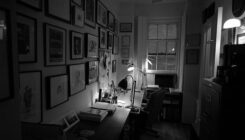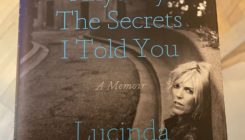
Matthew Shipp
This morning I was cleaning out some files and I came across these words from composer and pianist Matthew Shipp when he introduced my Deems Taylor / Virgil Thomson Award on November 17, 2015 at a ceremony put together by ASCAP in New York City. The award was for my piece for The Paris Review about John Coltrane’s first biographer, Dr. Cuthbert Simpkins. Reading his words now, Shipp’s perceptions of my “unusual” approach portend, hopefully, similar perceptions of the approach in my forthcoming Gene Smith’s Sink.
With permission of Shipp, and courtesy of the award presenters ASCAP, here’s a transcript of what he said:
We now honor North Carolinian author, Sam Stephenson…for an article that was published in The Paris Review titled “An Absolute Truth: On Writing a Life of Coltrane.”
Mr. Stephenson writes about a 1975 book, Coltrane: A Biography, and its young, self-published author at the time, Cuthbert Simpkins. Simpkins was neither a musician nor a writer – he was a black medical student who was so moved by Coltrane’s music that he decided he had to learn about the great musician by writing his biography. After spending time with Dr. Simpkins and his family in Shreveport, Sam Stephenson captures the essence of what drove Dr. Simpkins to write his book and makes the case for its lingering importance.
Of all the years I’ve been on this panel, this is one of the most unusual articles I’ve read. Instead of writing directly about a musician it goes after an obscure author of a bio on Coltrane, but in so doing it touches on so many things in the author’s life and on Coltrane, including really getting at the place that Coltrane occupied in both spirituality and universal consciousness and Black consciousness in the 1970s.
Sam Stephenson is with us tonight and accepting for The Paris Review is managing editor, Nicole Rudick.
Thank you, Matt Shipp.



